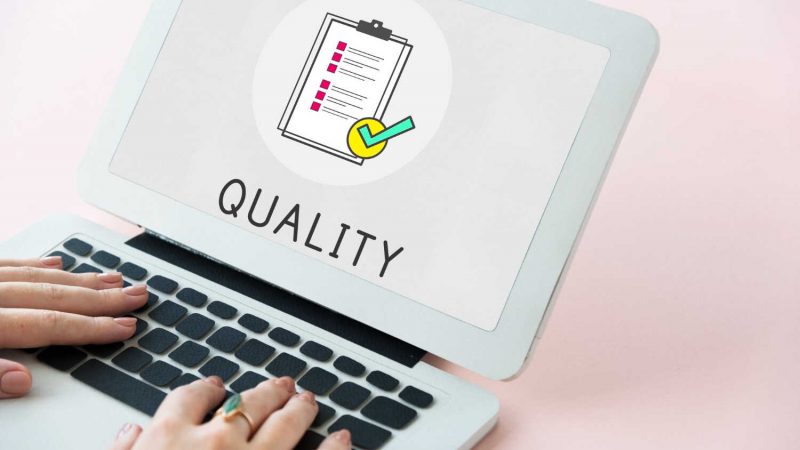10 Pros and Cons of Being a Medical Biller and Coder

Are you thinking about going into the medical billing and coding field? Medical billers and coders have both advantages and disadvantages. As with any employment, there are advantages and disadvantages to working as a medical biller and coder.
There are many benefits to a medical coding job, but it is not always simple. There are so quite a few things you have to do, and it can feel like you’re continuously swimming against the current.
However, there are some rewards to the position. So, before making any judgments, make sure to analyze the benefits and drawbacks of every option properly. Here are the top 10 advantages and disadvantages of working as a medical billing and coding specialist. To help you determine if this is the right option for you, here are the main pros and drawbacks.
10 Pros of Being a Medical Biller and Coder
1. There is no need to go to college for this professional route
Medical billers and coders have the advantage of being able to enter the sector after only completing a short, authorized training course. Depending on the curriculum, it could take anything from seven months to two years. As a result, after completing high school or receiving a GED, you can begin working and earning money right away. After graduating from high school, you’ll need to go to college for several years to pursue a career in healthcare.
2. You can accomplish your training entirely online
Medical billers and coders have the benefit of being able to complete their education entirely online. The convenience of learning online is that you may do it at any hour of the day or night. After work, before work, on the weekends you can do it. You’ll be able to work at your own pace thanks to online training. In addition, the convenience of online education makes it simpler to maintain a consistent study schedule.
The first few weeks of class may be exciting, but boredom quickly sets in, and you’ll stop going. Nothing truly changes when you’re learning online; you don’t have to drive to a location, find parking, and sit in a classroom, so you don’t have to lose interest.
3. As compared to other professions, the cost of your training is rather modest
In comparison to other professions, medical billing and coding require a little amount of education and training to be competitive. It costs anywhere from $1,000 to 3,000 dollars to complete a program.
As an example, becoming an electrician can cost as much as $7,000 to $15,000. Good news for medical billing and coding professionals everywhere!
4. There is room for advancement
Being a medical biller and coder has a lot of room for growth, which is a plus. You can work in practice management, medical auditing, compliance, clinical documentation improvement, and education after getting experience in your specialty. Some medical billers and coders transition into consulting roles after completing their training.
They could be experts in computerized transactions or cardiology billing, for example. Depending on their experience, some full-time consultants work with a variety of clients while others focus on building a client base and working from one location. You may be able to make more money if you develop in your career.
5. Benefits of working from home
As a medical biller and coder, working from home is one of the major perks. People who have children or pets they do not want to leave at home during the workday will greatly benefit from this option.
As a bonus, people who live in a region where it snows frequently and you have difficulty getting out of your driveway to get to work may find this feature particularly useful. As a bonus, working from home allows you to do all of your daily duties and still have time to work.
6. You don’t need to interact with a lot of people in order to be successful
There won’t be many people you have to deal with in your role as a medical biller and coder. As a result, the patient will never see you, and practically all co-payments and claims are now done online. In-person interactions aren’t necessary. The phone may be your only means of communication.
7. You have the option of working as an independent contractor
You will be able to work for yourself as an independent contractor if you become a medical biller and coder. Being self-employed will allow you to work for any medical facility in need of your expertise.
The type of facility you work for will be defined by the services they require to be billed. When you work as an independent contractor, you have the freedom to choose your own hours. You can take on as much work as you like because there is no defined schedule.
8. You’ll be able to do your work at a variety of places
A medical biller and coder can expect to operate in a wide range of environments. Health insurance companies, hospitals, medical practices, rehabilitation centers, long-term care institutions, and even independent professional billing services are all possible employers for medical billers and coders, as well as many more.
As a result, if one setting doesn’t work out, there are many more to explore until you find one that works.
9. You are in high demand
Because you won’t be going anywhere any time soon, becoming a medical biller and coder is one of the perks of working in the medical field. Medical billers and coders are in high demand, and that demand is expected to last far longer than the average person thinks.
Due to a lack of qualified replacements, skilled coders can sometimes be found working into their seventies and beyond. There is a lot of demand for your services, but you can be assured that your position is secure. You and your family will be able to make important decisions because of the wide range of options available to you.
10. You can work from anywhere
As a medical biller and coder, one of the most appealing aspects of the job is that you may work from any location. Because of the widespread demand for this type of employment across the country, you won’t have to move unless you’re looking for a complete change of scenery.
As a healthcare worker, you can easily land a position at any of the many medical facilities, hospitals, or billing and coding organizations.
10 Cons of Being a Medical Biller and Coder
1. Training programs require a diploma qualification for eligibility
A high school diploma or a degree in general education development (GED) is a prerequisite for medical and billing training programs. This is a must because you will be working with terminology that is very specialized in the medical field.
A medical billing and coding training program will be more successful if you have the language and math abilities learned in high school. This means that if you are unable to demonstrate completion of a high school diploma or a General Equivalency Diploma (GED), you will not be permitted to enroll in a medical billing and coding training program.
2. Accredited training programs are required
It is essential that anyone interested in working as a medical coder or biller enroll in an accredited training program. A certificate, diploma, or associate’s degree program is an option. Community colleges, vocational courses, universities, and other healthcare-related institutions all have training programs available. Depending on the sort of school you choose, the required training to become a medical biller and coder will take you anywhere from 7 to 24 months to finish.
3. You’ll have to get certified
To begin working as a medical coder or biller, you’ll need to get your certification. This can be done after you’ve completed your training. In order to become certified, you must take an examination.
In order to work as a medical coder or biller, you must pass two certification tests. Certified Professional Coder (CPC) and Registered Health Information Technician (RHIT) are the two exams required for certification. So, if you don’t pass these examinations, you’ve just wasted your time and money.
4. You’ll have to re-certify every few years
For medical billers and coders, one of the drawbacks is that accreditation must be renewed every two to three years, depending on the certifying authority. Some people question whether or not it’s worth it to put in the time and effort. Continuing education units (CEUs) or hours are often cited as a basis for this. Because they can’t “set it and forget it” like in other professions, some find this tedious.
5. You will need to master a vast number of new codes
In order to work in the field of medical billing and coding, it is necessary for you to become well-versed in the ICD codes already in use. As new ICD codes are issued each year, this process must be repeated. As of right now, there are more than 14,000 different ICD-9 codes available. There are presently more than 110,000 codes in ICD-10! All the best with mastering them.
6. You’ll have to keep up with any fresh updates
The medical biller and coder are responsible for keeping up to date with any changes in medical coding software. Coding certain ICD-10 or CPT codes can be problematic if any information is not correctly understood. A recent example of this was the issuance of a new ICD-10 code for Ebola disease.
Because it was just released, only a small number of medical coders and billers were aware of this new standard. Their private health insurance companies, on the other hand, identified those doctors who didn’t upgrade their software or understand the code correctly. Payments could be delayed if this error is made.
7. You must be able to use a computer
You’ll spend a lot of time in front of a computer if you work as a medical biller or coder. You can’t do your job without it. You’ll be unable to do your job and put yourself under additional stress if you don’t know how to operate a computer.
8. You may be susceptible to carpal tunnel syndrome
Carpal tunnel syndrome is a severe drawback of working as a medical biller and coder. Carpal tunnel syndrome is a prevalent ailment among medical billers and coders. Medial nerve compression in the wrist causes tingling or numbness in the hands in people with carpal tunnel syndrome.
For medical billers and coders, the discomfort and aggravation of this disease can be excruciating. It is imperative that you either find a new job or work in pain if you get this syndrome.
9. You will spend most of your workday sitting
Most of your day will be spent at a computer keyboard as a medical biller or coder. A person’s health suffers when he or she sits for long periods of time. Working on charts and entering data all day is a drudgery that wears you out. Obesity, heart problems, blood clots, type 2 diabetes, and tumors are major health risks.
10. Your starting pay is not particularly substantial
If you’re considering a career as a medical biller or coder, it’s important to keep in mind that the starting compensation isn’t particularly high. As a new employee, you can expect to be paid an hourly rate of $13.85 per hour, which works out to roughly $28,800 per year in total. In some states, that isn’t even the minimum wage.






